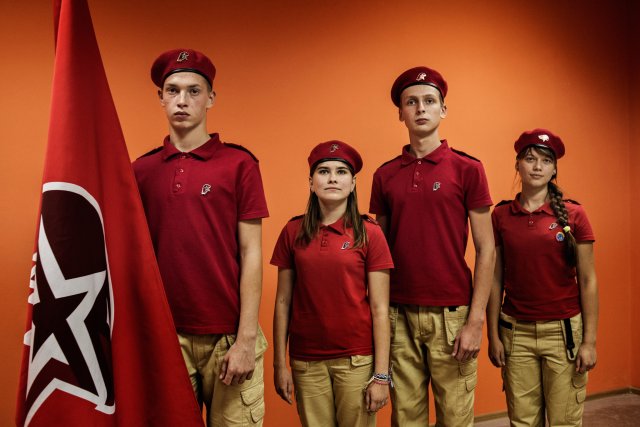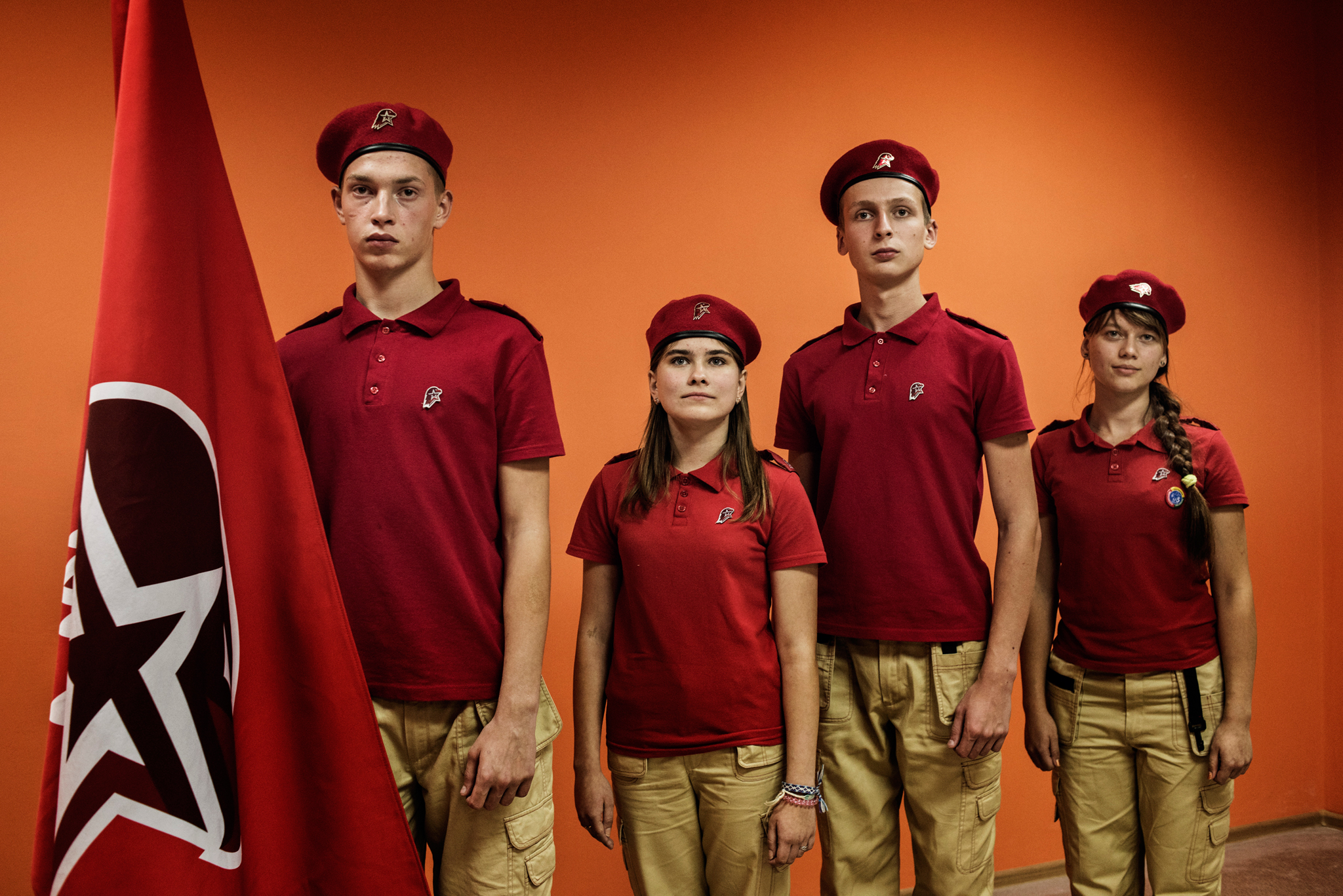Russia’s Children
A generation born under Vladimir Putin
Photographs by YURI KOZYREV—NOOR
Text by SIMON SHUSTER
Stop by any classroom or college in Russia, and there’s one thing that pretty much all the students will have in common: They will have no memories of a political leader other than President Vladimir Putin, who has been in power for more than 17 years. His tenure started before most of Russia’s high school students were born – and it’s gone on long enough for some in Russia to start calling this generation “Putin’s Children.”
But the nickname won’t tell you much about their politics. Over the past few years, as TIME contract photographer Yuri Kozyrev has photographed young Russians around the country, he’s found their ideas about patriotism vary as widely as their tastes in music. They range from dogmatic conservatives to convinced revolutionaries, with every shade of blissful ignorance and apathy in between.
That’s partly why the Kremlin has started to worry about them. As they’ve grown old enough to vote, to run for office and, in some cases, to protest in the streets, they’ve reminded Putin that his system has an expiration date. It will survive only as long as Russians continue to tolerate it, and judging by the latest polls, the President doesn’t have much to fear from the young: 88% of Russians between the ages of 18 and 24 say they support the President, according to the Levada Center, an independent pollster.
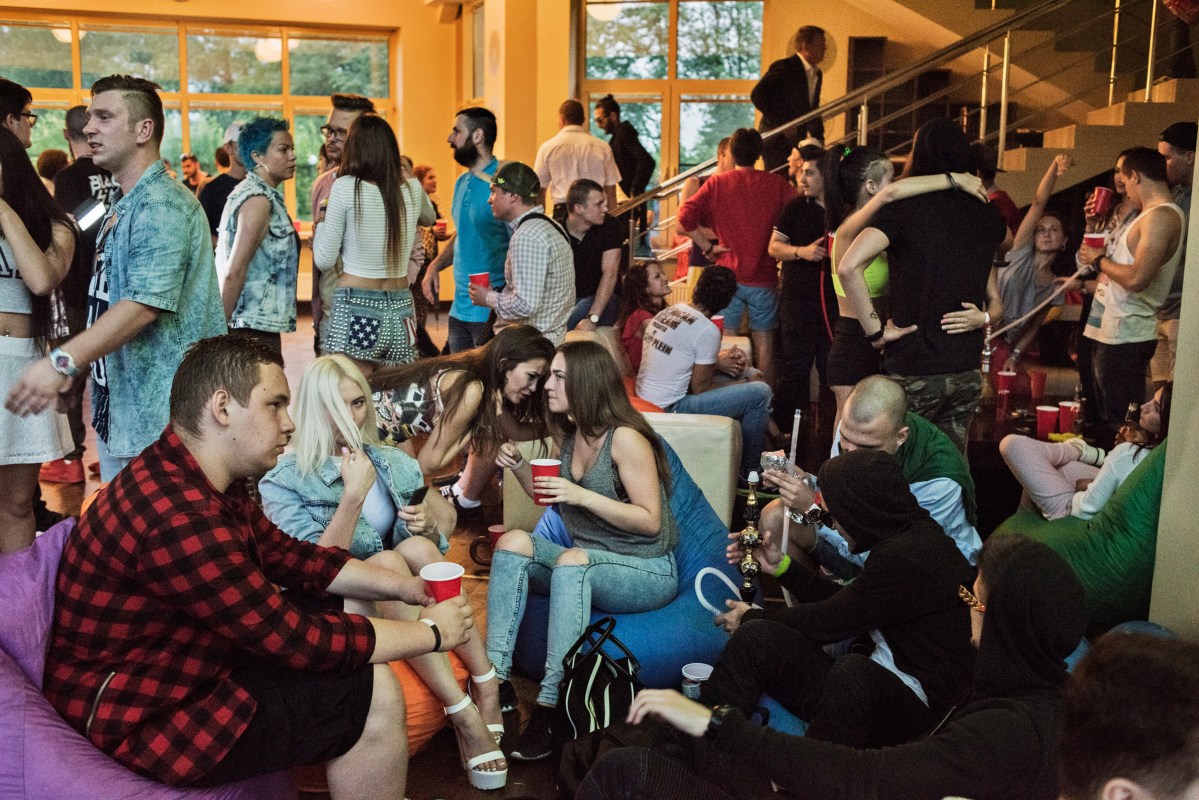
An American style going away party at a villa outside Moscow, Russia, June 2015.
As Putin prepares to stand for another term in office in March of next year, the authorities are intent on keeping his ratings at these stratospheric levels. Patriotic summer camps for kids have been cropping up all over the country, often involving some sort of military training. Last year the Defense Ministry founded a movement called the Young Army, which is devoted to instilling a love for the Motherland.
Taken together, this strategy amounts to a far more jingoistic approach to education than Putin previously championed, and it shows how much his style of leadership has changed. In the early winter of 2009, when he was a relatively spritely 57-year-old, he once agreed to appear at a rap battle on Russia’s version of MTV.
Most of the kids in the hall looked impressed – or, at least, not too embarrassed for him – when he got up on the stage in a beige turtleneck and declared that, “Street rap, though it’s maybe a bit rough, is already filling up with social meaning.”
It’s hard to imagine Putin going for a stunt like that today. Now 64, the President is one year away from the age when Russian men can legally retire. He’s visibly aged and grown shier of crowds. The liberals in his circle have been pushed out in favor of older men with military backgrounds and paranoid dispositions. If their leader decides to take another term as President next year, he will be free to rule until well into his 70s – just as long the young generation doesn’t start demanding change.
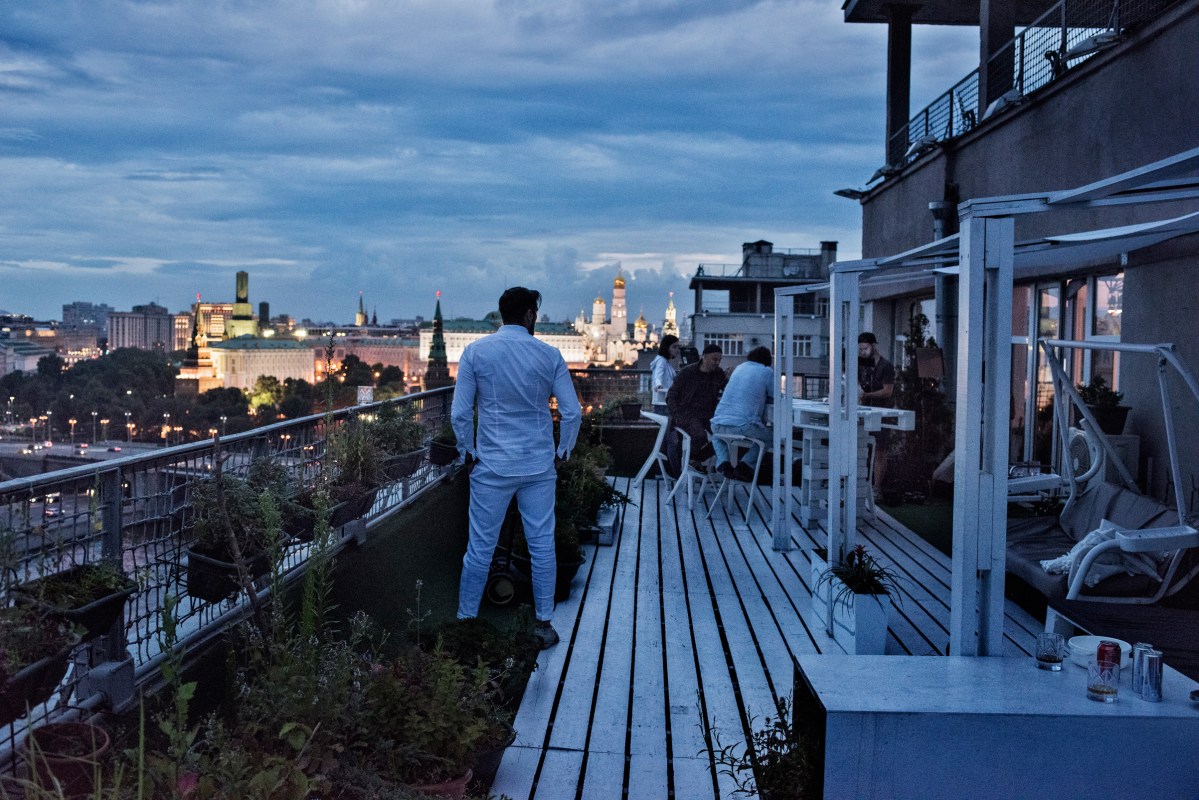
“Rooftop University,” A Friday evening event held by Departament, a marketing agency, that sponsors talks by professionals in media, culture, and business, Moscow, July 2015.
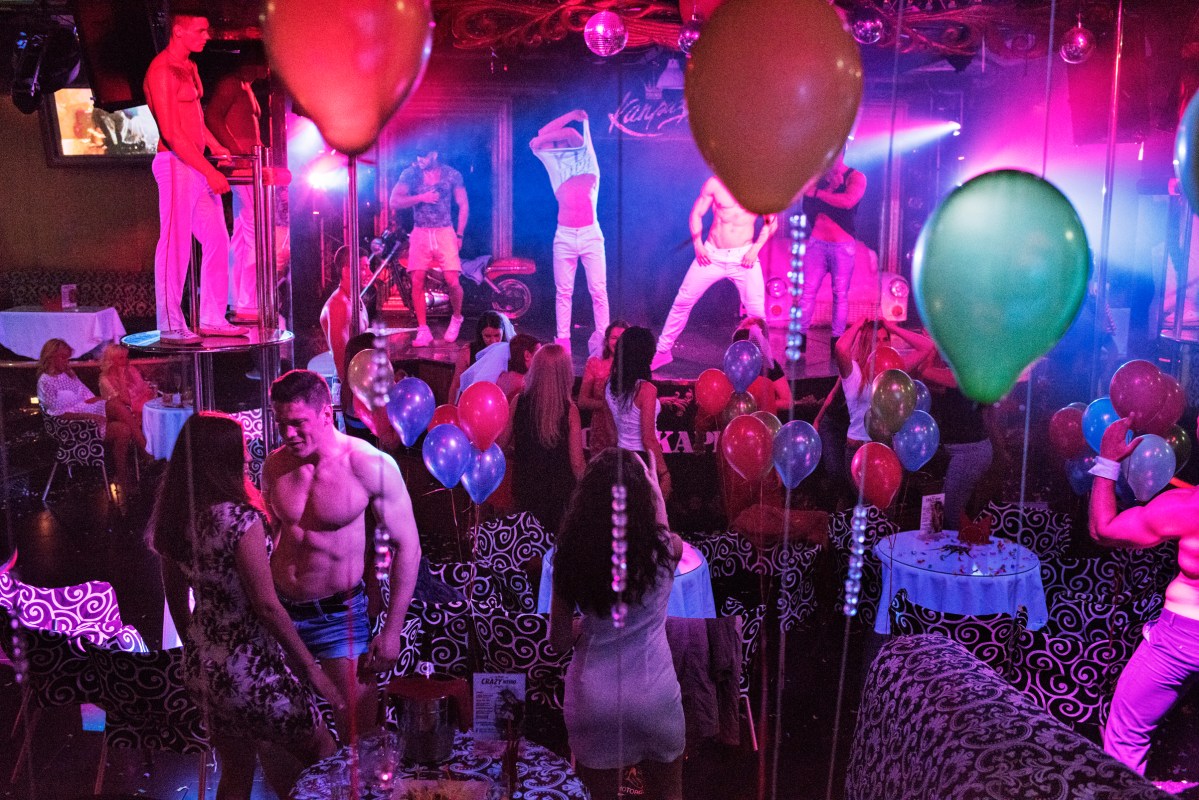
Young women watch male strippers at Club Kapriz in Moscow, July 2015.
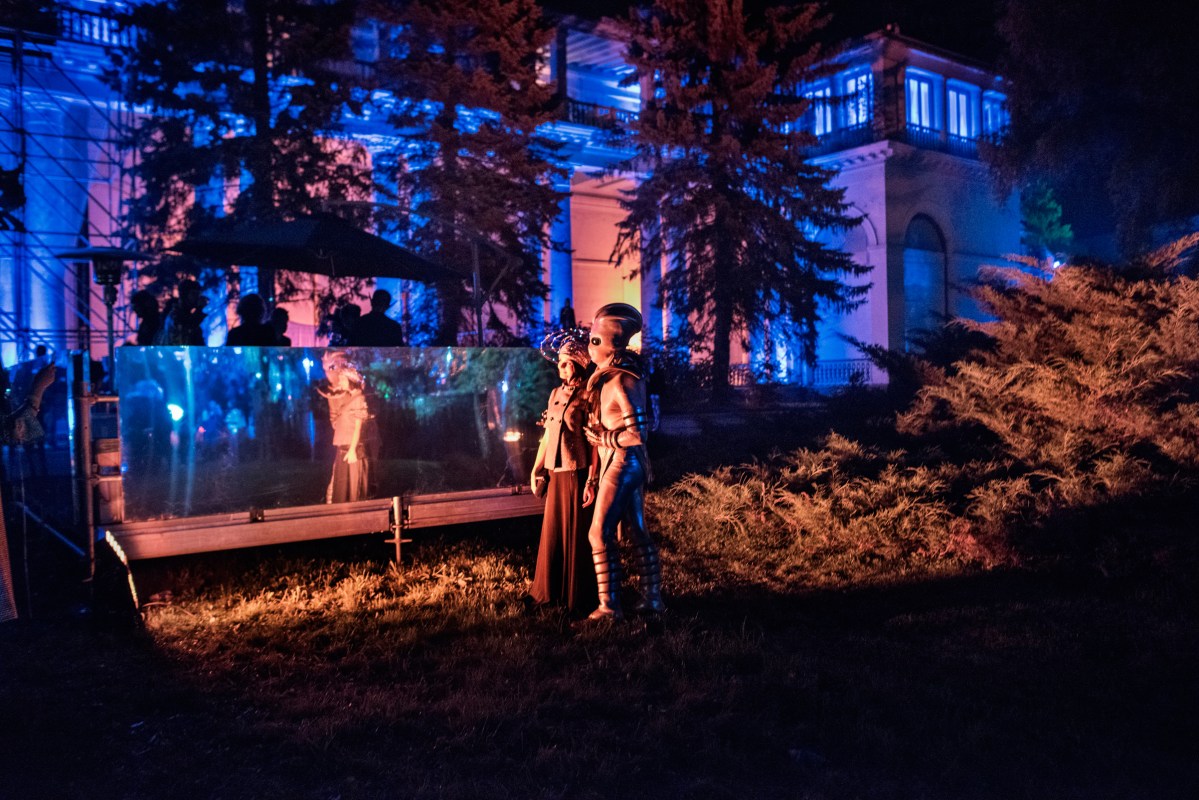
The Midsummer Night’s Dream is an annual open-air summer party that styles itself as “retro-futuristic.” In 2015, the event turned Moscow’s biggest exhibition center, VDNKh, into an alternative city of the future, with participants wearing costumes from legendary Soviet sci-fi movies and Hollywood classics like Star Wars and The Matrix.
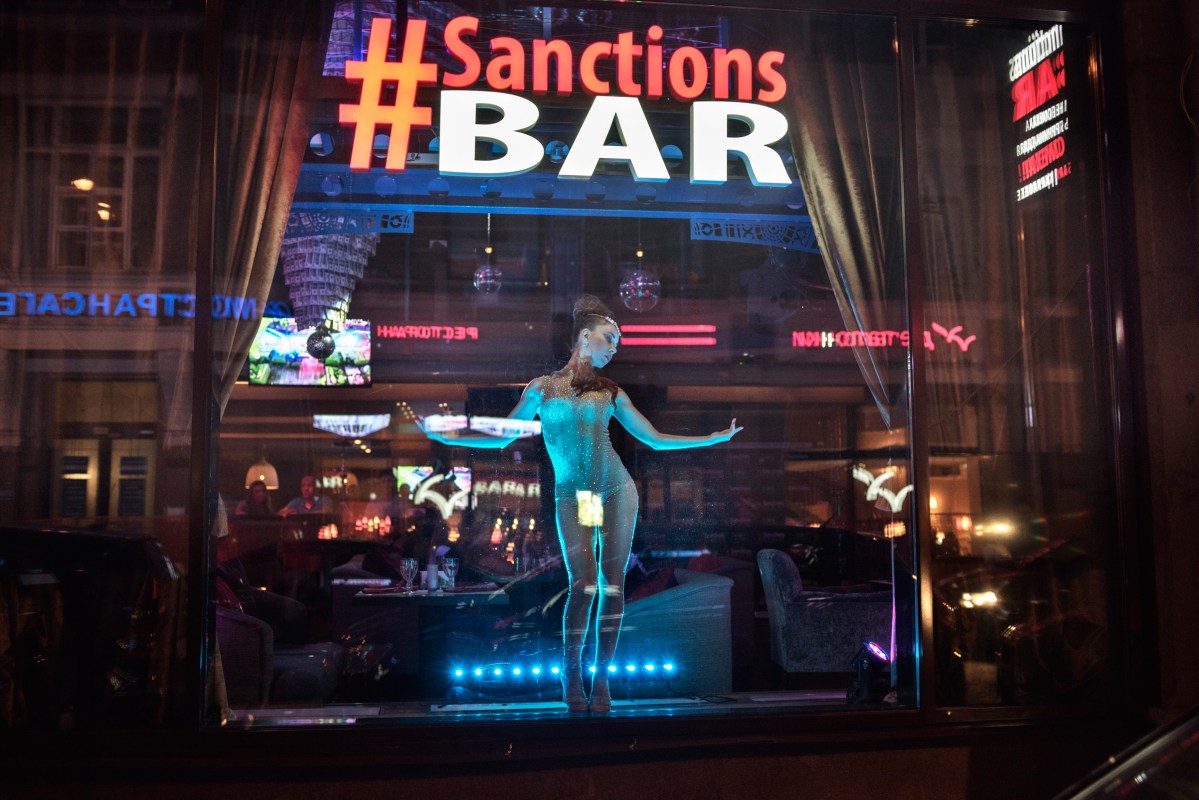
A dancer in the window of the #Sanctions Bar in Moscow, June 2015. Designed to make light of the economic sanctions that the U.S. and its allies imposed on Russia over the conflict in Ukraine, the bar features oil drums, a chandelier draped in fake $100 bills, and a menu poking fun of Barack Obama.
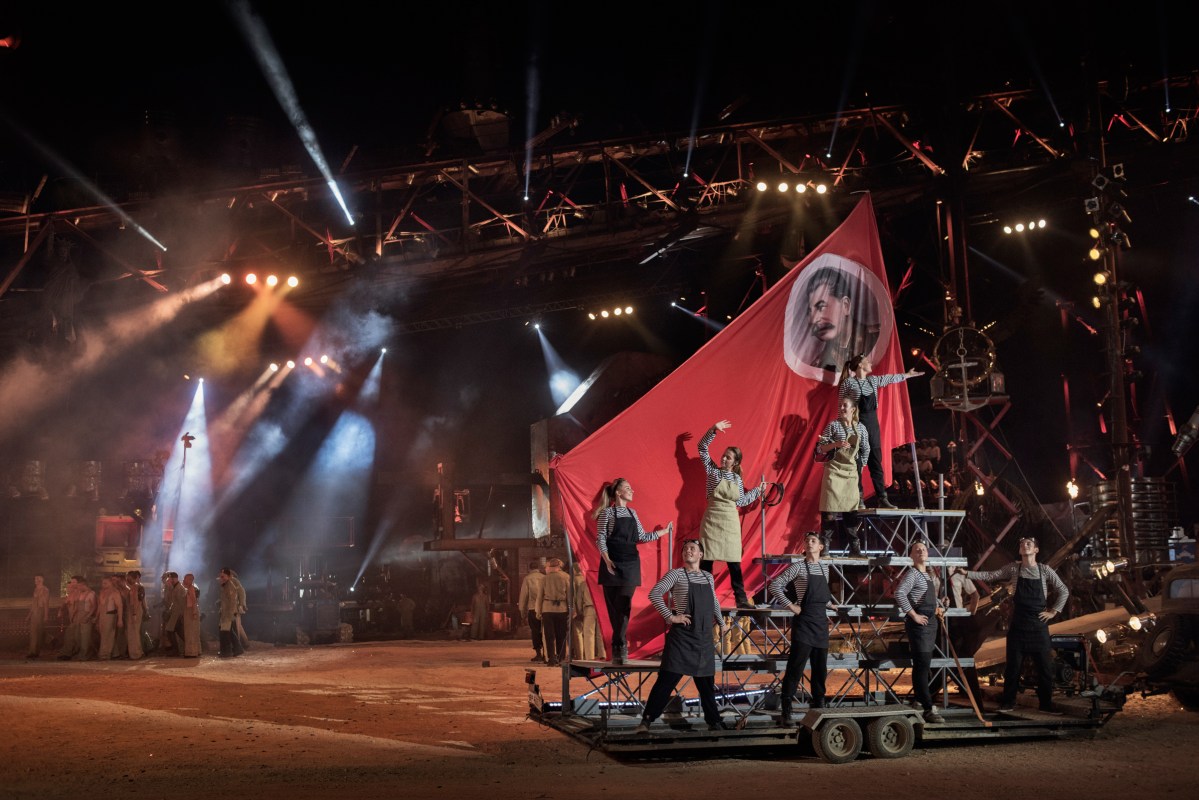
A biker show organized in the Crimean city of Sevastopol by the Night Wolves, a Russian motorcycle club that rooted for Moscow’s decision to invade and annex Crimea from Ukraine. While introducing Western biker culture to Russia, the Night Wolves have also encouraged a patriotic fervor around President Vladimir Putin, who has gone on motorcycle rides with the group and visited their clubhouse in Moscow.
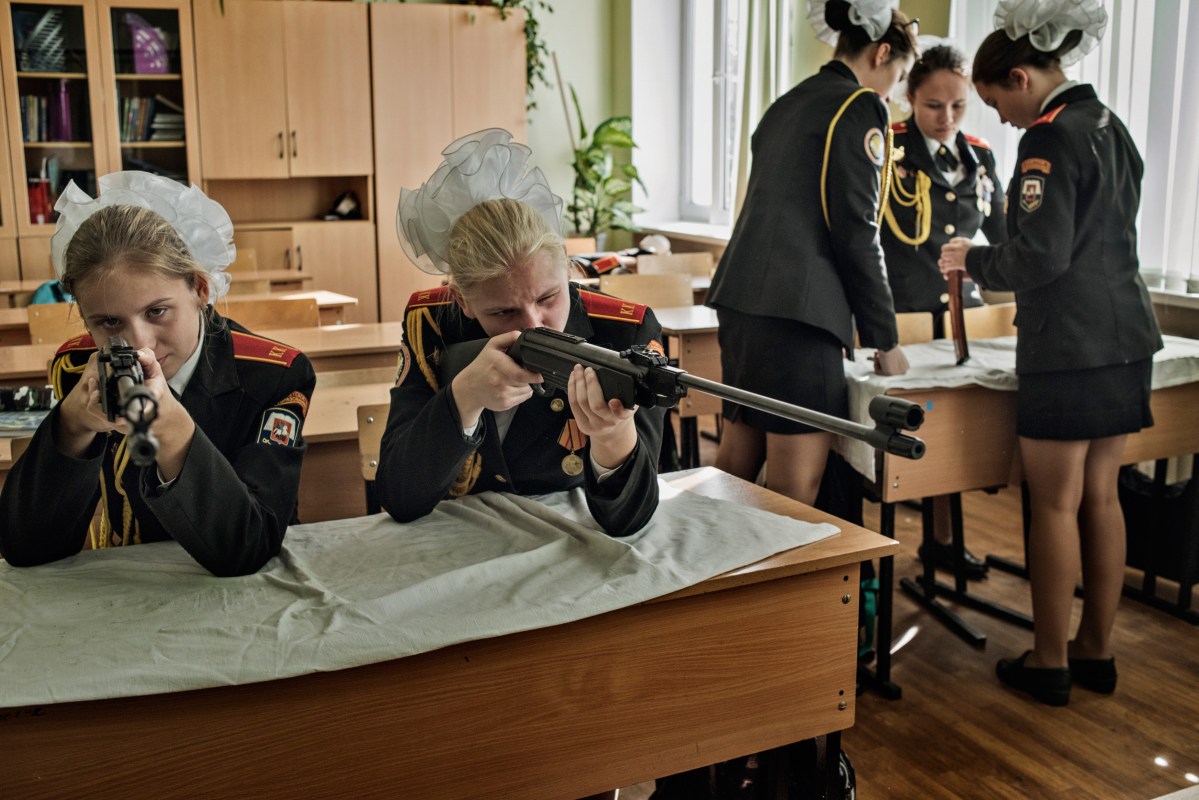
Young girls learn how to assemble and shoot rifles at a cadet boarding school in Moscow.
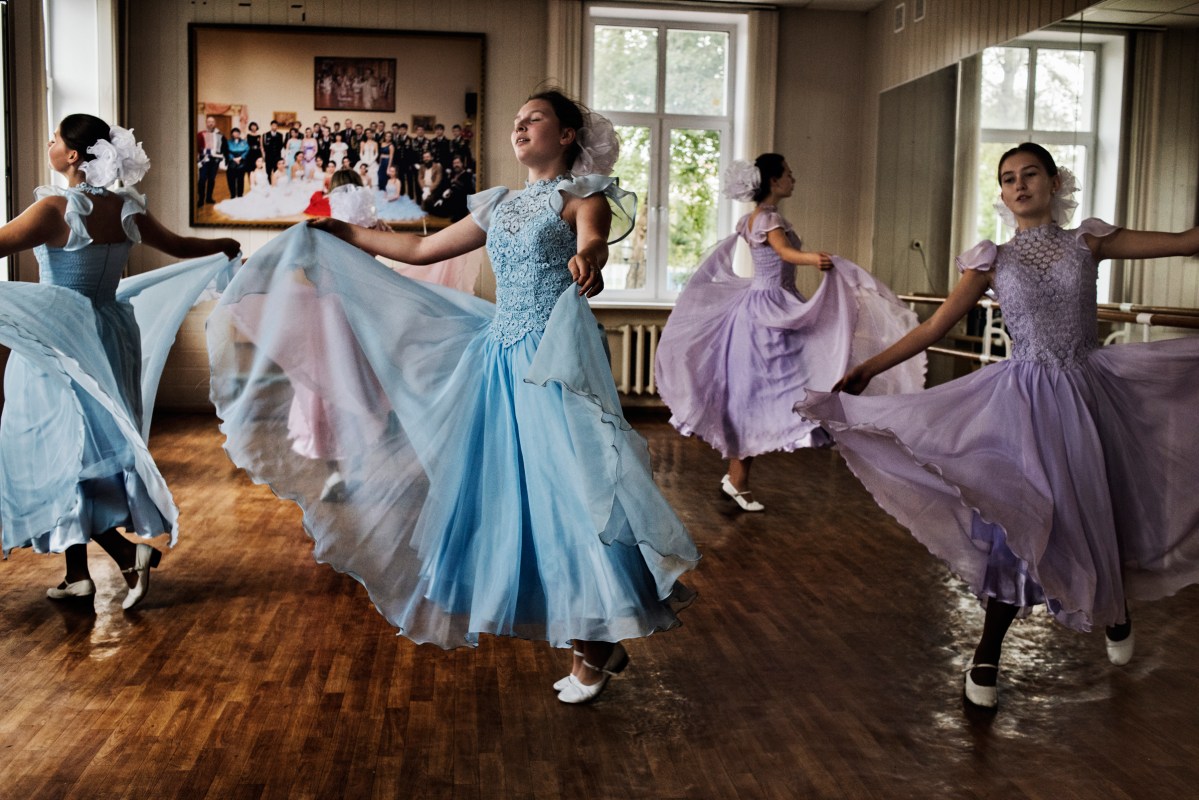
The school also teaches traditional subjects. Here, they attend an annual Winter Ball where they can meet boys from the Moscow Cossack Cadet Corps, another military-style academy that has become popular in the Putin years, September 2016.
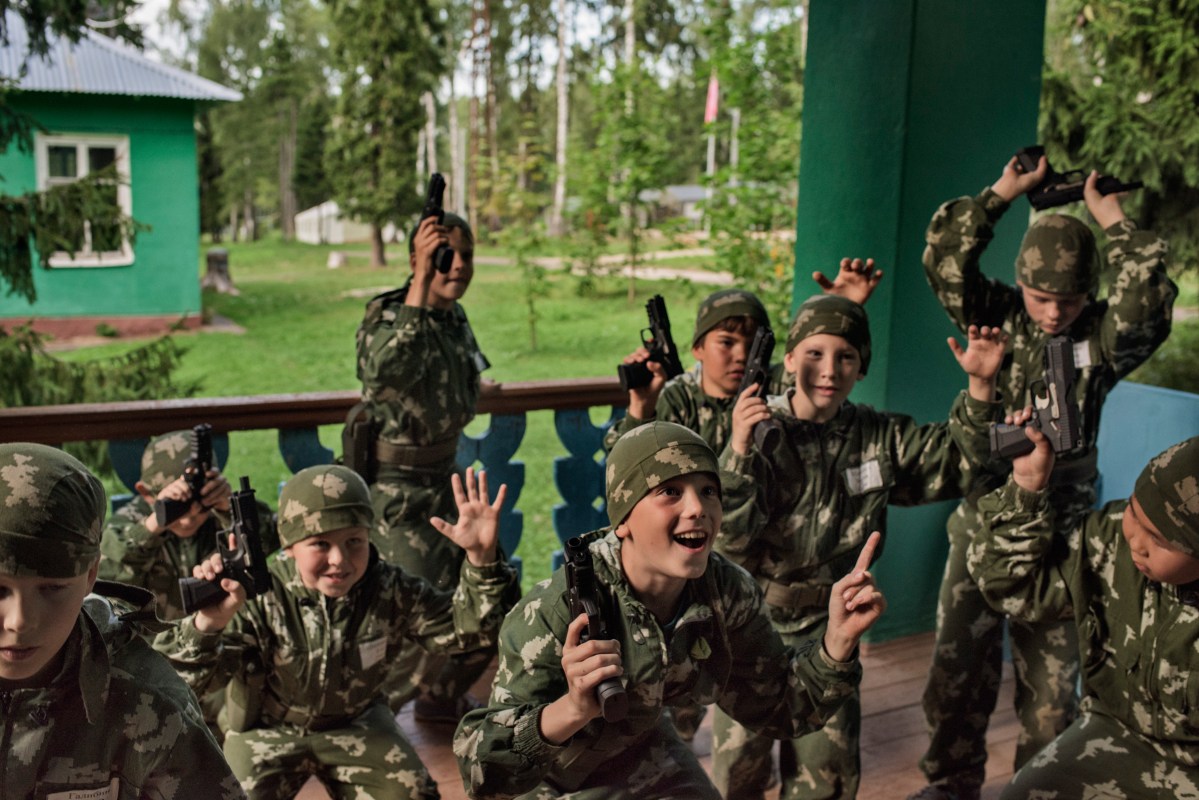
At the children’s military summer camp known as Razvedbat, meaning “Reconnaissance Battalion,” Russian boys and girls prepare for military service, learn to love their country and to fight for it, using a rich variety of weapons, in Klin, a suburb of Moscow, August 2016.
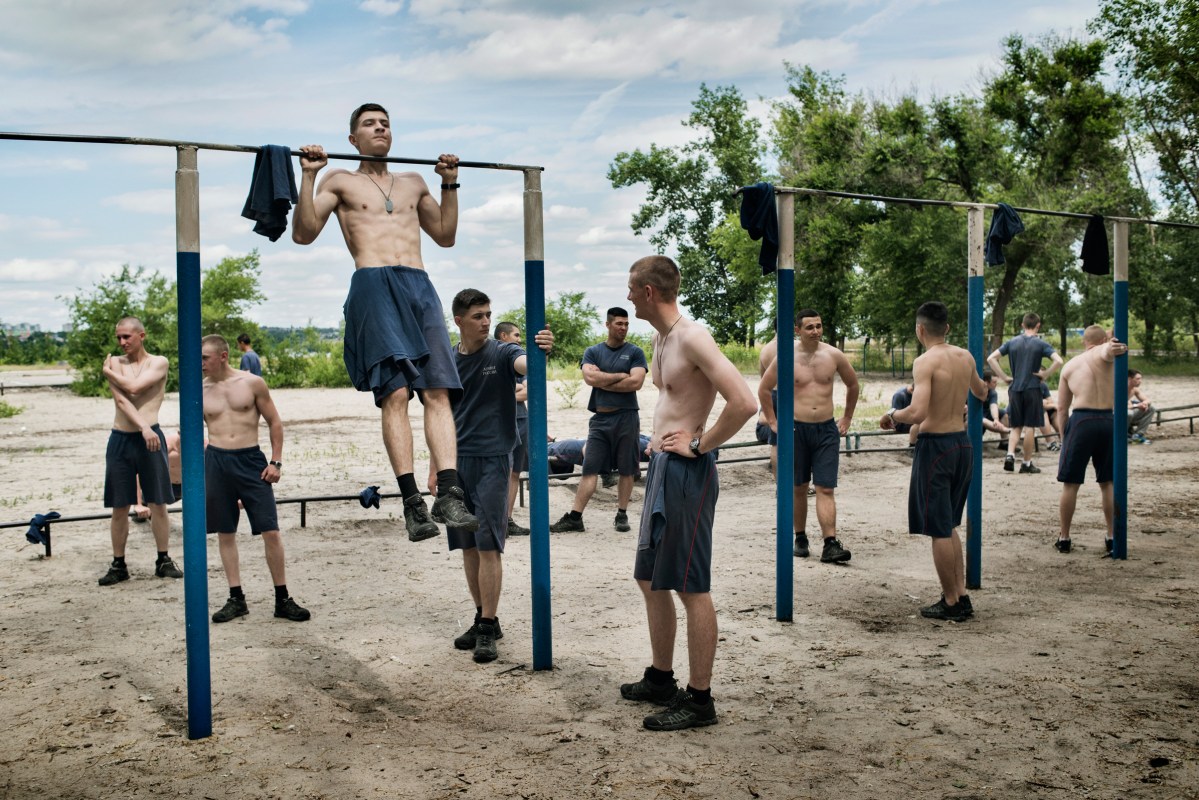
Young men do morning exercises, Voronezh, Russia, June 2016.
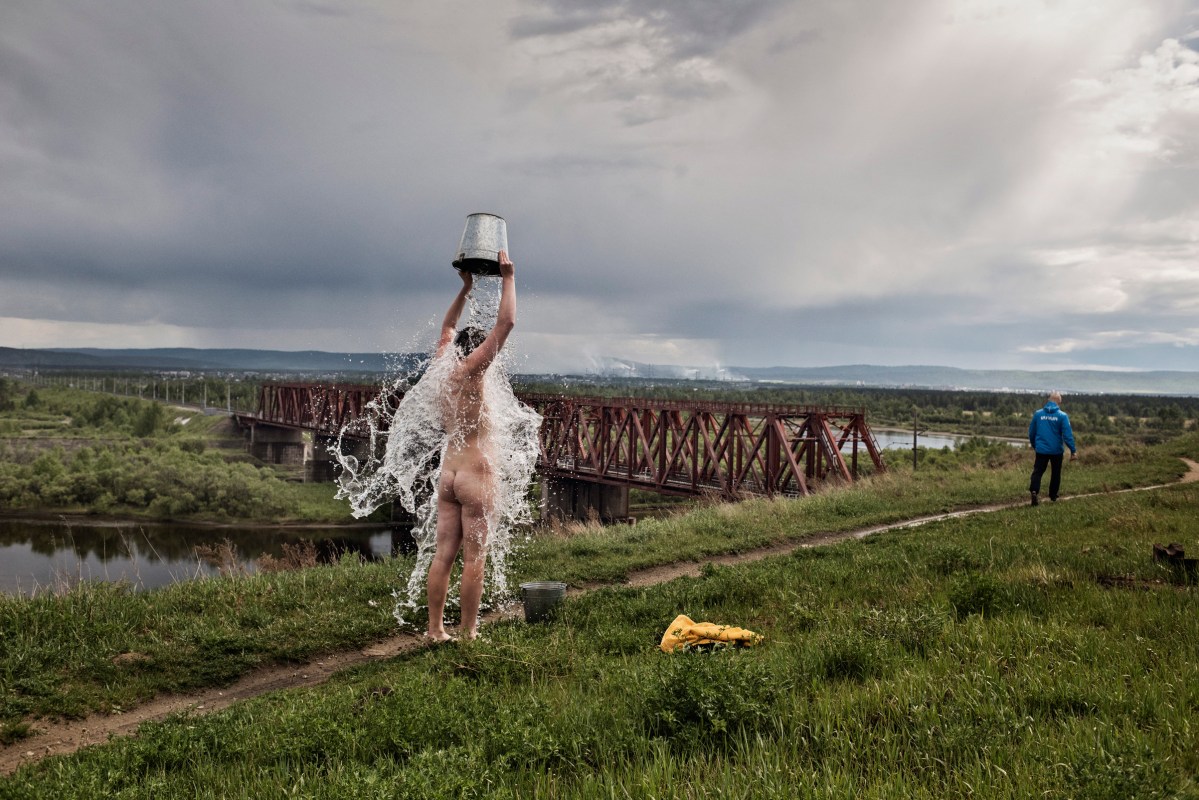
17-year-old Dmitri pours cold water over his body at a rehabilitation clinic on the outskirts of Irkutsk, Russia, June 2015. The use of synthetic drugs is on the rise in Russia, becoming an epidemic in certain parts of the country and straining the state’s ability to offer rehab.
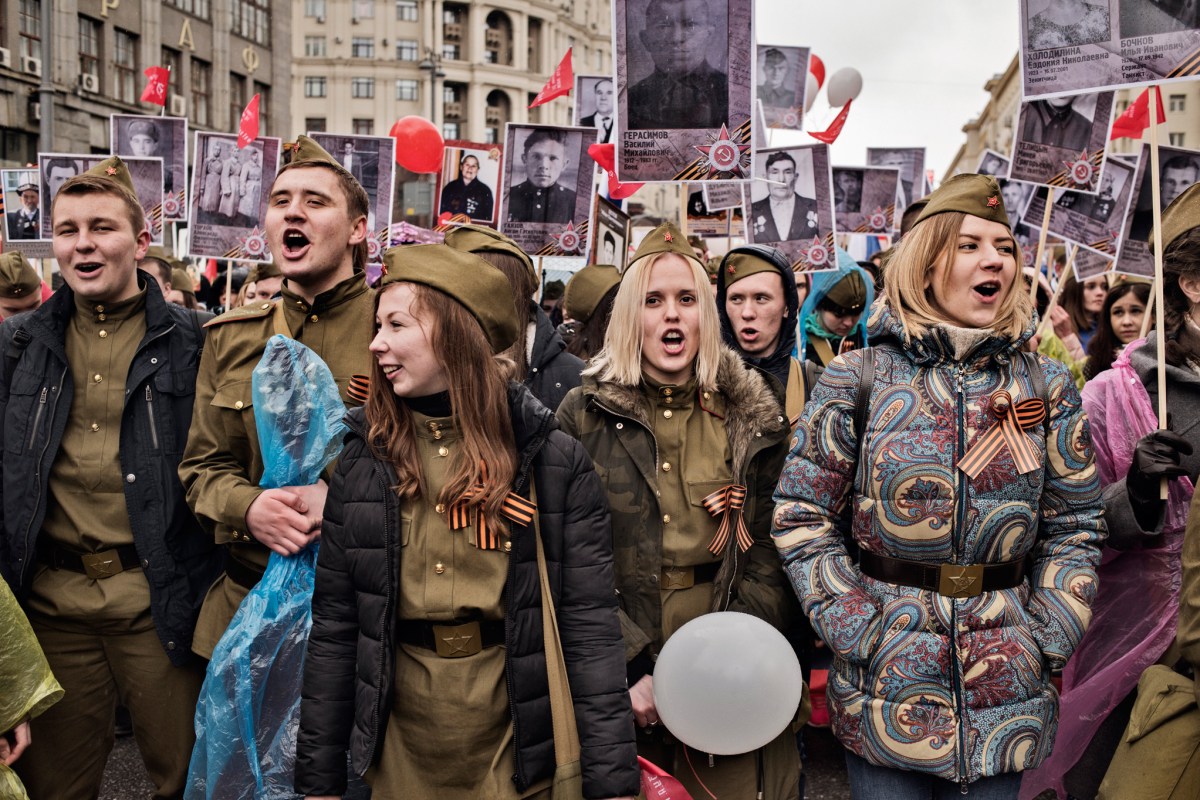
Young patriots carry portraits of World War II soldiers during the annual Victory Day march, marking the anniversary of the 1945 defeat of Nazi Germany, Moscow, May 9, 2017.
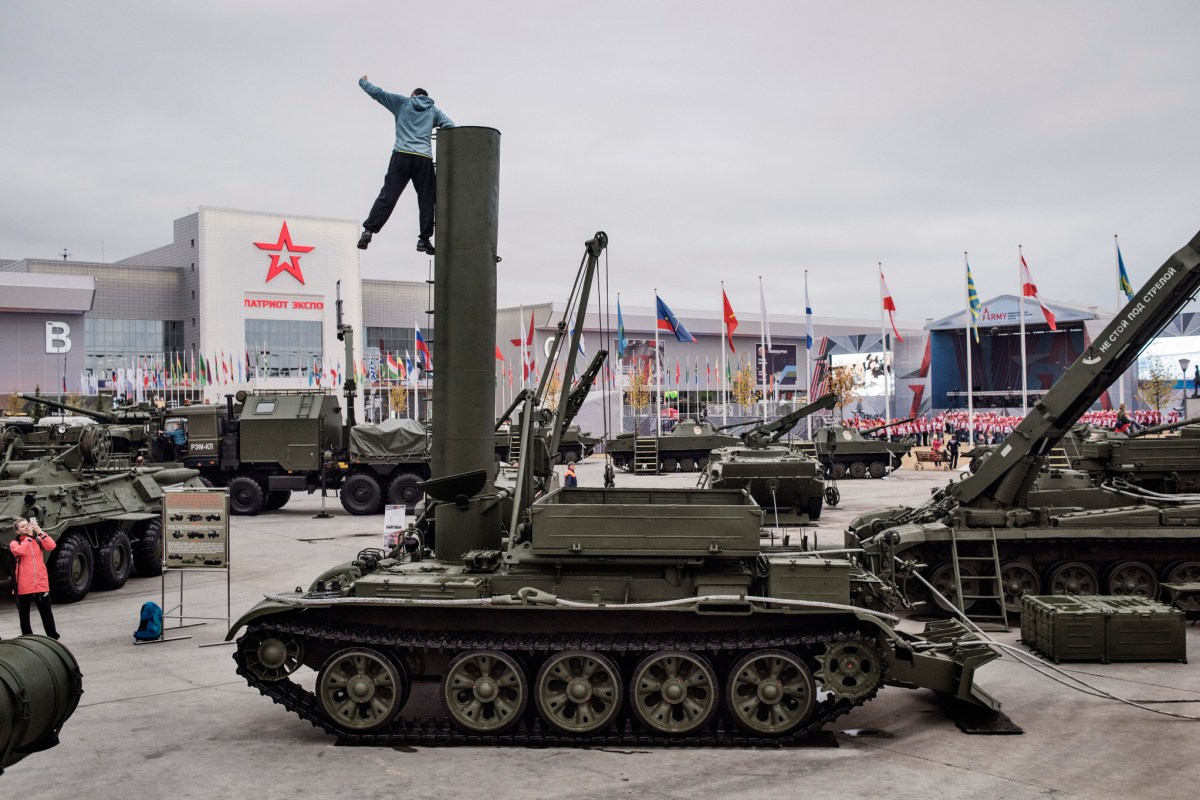
Patriot Park near Moscow is a military theme park opened by President Putin who described it as “an important element in our system of military-patriotic work with young people.” Here, a visitor climbs atop a tank at the Army 2016 international military and technology forum.
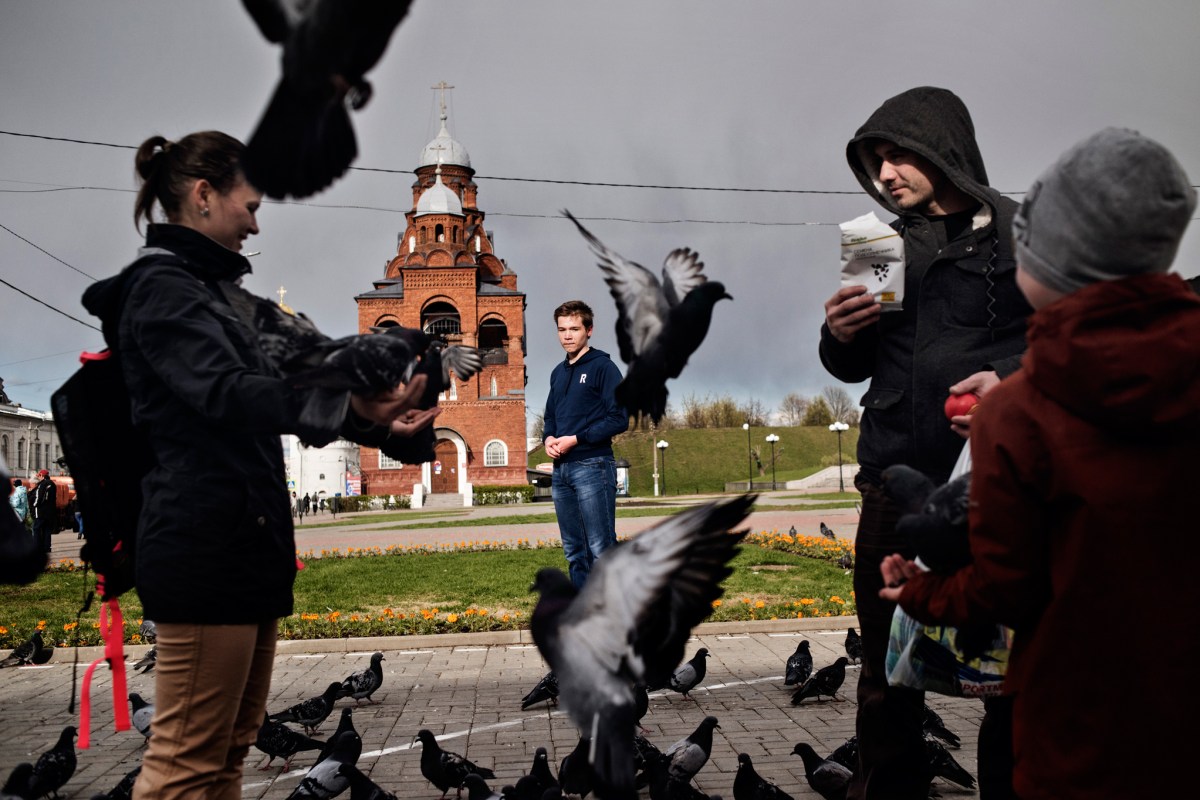
Born in 2000, the year Russian President Vladimir Putin first came to power, Mikhail (center), represents a generation that Russians have taken to calling “Putin’s Children.” The speech he gave at an anti-Putin demonstration in March got him in trouble at his school in Vladimir, Russia. Pictured in May 2017 , he says he still plans to join the next protest, which is scheduled for June 12.
Yuri Kozyrev is a photojournalist and a TIME contract photographer. He is represented by Noor.
Alice Gabriner, who edited this photo essay, is TIME’s international photo editor.
Simon Shuster is a TIME correspondent based in Berlin.
